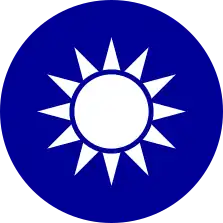 | |
| Leader | Jou Yi-Cheng |
| Founded | September 2007 |
| Headquarters | Taipei, Taiwan |
| Ideology | Social democracy |
| Political position | Left-wing |
The Third Society Party (TSP; Chinese: 第三社會黨; pinyin: Dìsān Shèhuì Dǎng; Pe̍h-ōe-jī: Tē-saⁿ Siā-hōe Tóng) is a Taiwanese political party headed by Jou Yi-Cheng (周奕成), a former DPP member.
Policies
The TSP declared that it will not support any of the candidates fielded by the Pan-Greens or the Pan-Blues in the presidential election of 2008.
The position of the new party on Taiwanese national identity is that the Taiwanese community, comprising the 23 million people in Taiwan and its outlying islands, is an independent and sovereign nation, with the Republic of China as its constitutional name.
History
TSP has called for establishment of the country's "eighth constitutional reform"—or the "third republic" constitutional reform—calling for a parliamentary system of government; single-member constituency and two-vote electoral system; the holding of a nationwide referendum on the content of a new constitution; and lowering the threshold to initiate constitutional reforms.
Future
The new party, formally established in mid-September 2007, would field candidates in the next legislative elections scheduled for January 12, 2008, but it would not nominate any candidate for the upcoming presidential election, nor support the candidate of any party.
For the legislative elections, the party plans to focus on the second ballot, where a person votes for a party, rather than the first ballot for a candidate (referring to the voting process under the new "single-constituency, two-ballots" system, to be implemented in the January 2008 voting).
Thirteen people were on the first TSP list of potential legislative candidates, including Wu Rwei-ren (吳叡人), an assistant researcher with Academia Sinica's Institute of Taiwan History, Lee Ting-tsan (李丁讚), a professor with the Institute of Sociology, National Tsing Hua University, and also including scholars who were regarded as close to the DPP in stance.
